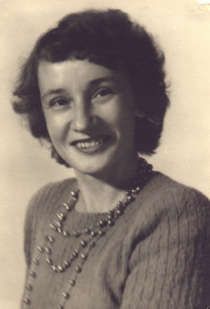This article's lead section may be too long. (February 2022) |
Tatiana Proskouriakoff | |
|---|---|
| Татья́на Авени́ровна Проскуряко́ва | |
 | |
| Born | Tatyana Avenirovna Proskuryakova January 23, 1909 |
| Died | August 30, 1985 (aged 76) Cambridge, Massachusetts, United States |
| Nationality | Russian |
| Citizenship | United States |
| Alma mater | Pennsylvania State University |
| Known for | Seminal contributions to Mayanist archaeology |
| Scientific career | |
| Fields | Mayanist archaeology and linguistics |
| Institutions | Peabody Museum of Archaeology and Ethnology Carnegie Institution of Washington University of Pennsylvania Museum |
Tatiana Proskouriakoff (Russian: Татья́на Авени́ровна Проскуряко́ва, tr. Tatyana Avenirovna Proskuryakova; 23 January [O.S. 10 January] 1909 – 30 August 1985) was a Russian-American Mayanist scholar and archaeologist who contributed significantly to the deciphering of Maya hieroglyphs, the writing system of the pre-Columbian Maya civilization of Mesoamerica.
Born in Tomsk, Tatiana moved to the US with her parents in 1916. In 1924, she accepted American citizenship. She graduated from the College of Architecture at Pennsylvania State University (1930). In 1936–1937, she took part in two seasons of an archaeological expedition to Piedras Negras (Guatemala). In 1939, she made scientific trips to Copán and Chichen Itza. From 1940 to 1958, she was a staff member of the Carnegie Institute and developed methods of dating ancient Mayan monuments based on the peculiarities of the fine arts style. From 1950 to 1955, she worked at the excavations of Mayapan. In 1958, Proskouriakoff moved to the Peabody Museum at Harvard University, where she worked until her retirement in 1977. In her final years of life, she had Alzheimer's disease.
Proskouriakoff's most significant scientific contribution is considered to be the consistent application of the structural method to Mayan inscriptions of the classical period, as a result of which she proved that historical events were recorded on the monuments. Publications about new method application have been published since 1960. In 1967, she wrote the preface for the English translation of Yuri Knorozov's monograph "Writing of Maya Indians". However, she did not try to voice Maya texts, although she recognized the method of deciphering the written language.
Her work laid a solid foundation for understanding Mayan historical texts and reconstructing the political history of Mayan city-states. In 1974, she prepared a catalog of 1000 jade products from the sacred cenote Chichen Itza, kept in the Peabody Museum. Proskouriakoff worked for over 20 years on the consolidated history of the Maya, which was published posthumously in 1994. In 1998, part of Proskouriakoff's ashes was buried in the "J-23" building on the Acropolis in Piedras Negras, which she depicted in her archaeological reconstructions.[1]
- ^ Solomon C. Tatiana Proskouriakoff: interpreting the ancient Maya. — Norman : University of Oklahoma Press, 2002. — 218 p. — ISBN 0-8061-3445-3. The Ceremony of the Ashes (1998)